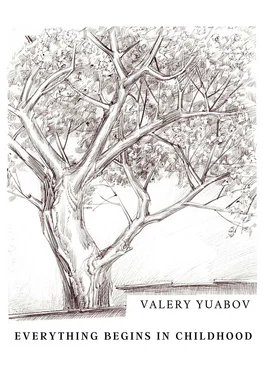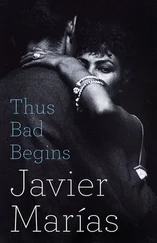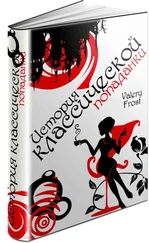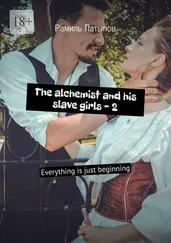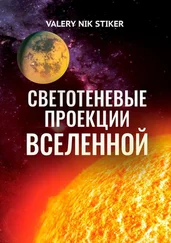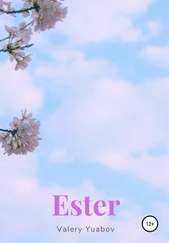Valery Yuabov
Everything Begins In Childhood

Old Courtyard
For my dear Mama
* * *
From the Author
I consider it my important duty and pleasant responsibility to express my tremendous gratitude to my dear friend and helper, Raisa Isaacovna Mirer, without whom this book would never have been created.
She not only encouraged me to write but also contributed her soul and enormous experience as a literary editor to our joint work.
* * *
In Place of a Foreword
The Bukharan Jews have deep literary traditions. However, at the end of the 1930s, they were forcibly interrupted. Creative literary work, along with the activities of all other artists in this multi-faceted ethnic culture, was strictly prohibited in the Soviet Union.
The revival of our cultural traditions began fifty years later when a large part of the Bukharan Jews moved to Israel, the United States, and other countries of the free world. Books by Bukharan Jews, both scholarly and fictional, have been published one after another. Memoirs hold an important place in this unprecedented outpouring.
The book the reader is holding belongs to this genre, yet it holds a special place outside that stream. There are several reasons why.
First, the majority of memoirists are people of advanced age. Their way of thinking was formed in their former life, pre-emigration. The author of “Everything Begins in Childhood” is rather young, around 40. He left Uzbekistan when he was 18. His worldview and mentality were, to a great extent, formed under the influence of the new culture. In other words, he had an opportunity to acquire his viewpoint from a distance. I think this circumstance will help readers understand many of the things depicted in this book. “I write… for my children and grandchildren who live in a different part of the world, in a different culture…” the author writes.
Secondly, and no less important, this book is notable for its beautiful writing style, which, from the very first pages, carries the reader away. The childhood impressions are vivid and three-dimensional. The characters in the story – parents, immediate and distant relatives, teachers, friends – are amazingly expressive. The author depicts them truthfully, with love, humor, pain, and sometimes with bitterness. Not every memoirist would dare do that.
At the same time, the book urges us to think about life. It allows us to imagine that terrible time when the ruling Communist ideology perverted the fates of millions of people in Uzbekistan and other parts of the Soviet Union.
I believe this book will serve as valuable material for historians and ethnographers who study the life of the Bukharan Jews in the 1950s-1970s.
In closing, I urge the author to continue his creative work and to use his talents to depict his life in America in the same way.
It goes without saying that this book should be published not only in Russian but in English as well.
David Ochildeyev
Ph.D. in History, Honored Scholar of Uzbekistan
Chapter 1. 6 Korotky Lane (Short Lane)

"Vale-e-ya-a!" I heard as I went out into the courtyard. I could see my two-year-old cousin Yura's little round face in a window across the yard. Although he was standing on his tiptoes on the windowsill, his head hardly reached the fortochka (a small hinged windowpane in the upper corner of the window). He couldn’t yet pronounce the letter “r” so he when he said my name “Valera,” it came out rather comically as “Valeya.”
"Vale-e-ya-a, my mama is beating me up!" he shouted mournfully.
It was an early April morning, and it was Sunday. Everyone in our courtyard was still asleep, as was the whole of Tashkent, so I was afraid that Yura’s yelling would wake our relatives and neighbors. At that moment, Yura’s mother Valya came up to the window. When she reached out her hand, it was not to spank Yura. Holding him by his little behind, she asked with a smile, "Why are you yelling? Everyone’s asleep.” My cousin didn’t need protection, of course. He was just making mischief, as always. But I wasn't outside to play with him. Mother and I were going to the hospital to visit my father.
"Yura, wait for me, all right? I’ll be back and we’ll play our war game." A smile spread across his little round face. He just loved to play our war game. Our three-year age difference didn’t keep us from being friends, from playing together, quarreling, and even fighting.
The kitchen door squeaked. Grandpa Yoskhaim walked out onto the porch with a knapsack on his back. Grandpa was a shoemaker. His hands told the story of his hard work – the skin so rough it looked like fish scales, the callused palms, the blackened fingertips covered with scars, and the twisted nails. But those disfigured hands were very strong. Sometimes, when an acquaintance had incurred his displeasure, Grandpa – and he was sixty-seven – could drive him to tears with his iron handshake. A person would approach him with a smile to say hello but leave doubled over.
Grandpa was tall, with broad shoulders. His thick eyebrows, – now gray, but once jet-black – his high forehead and dark eyes were evidence of some Iranian Jewish heritage. And he spoke with a slight, yet distinctive, accent.
I would say that Grandpa Yoskhaim’s life could be summed up in just two words – Torah and work. He prayed at home in the morning, worked from sunrise to sunset six days a week, and spent Saturdays at the synagogue. Like his father and his father’s father, he had only one concern –feeding his family. As to raising the children, he left that completely to his wife.
" A kelin, chi to et?! (How are you doing, daughter-in law?)," he greeted Aunt Valya in Tadjik, as always.
"I’m fine. Thank you. How about you?"
But Grandpa was already smiling and nodding to Yura. " Nagzi, Yura? (How are you, Yura)?" he asked slowly.
Grandpa enjoyed joking with small children. He pronounced the word “nagzi” with a long guttural “g” and drawn out “i.” As he was saying it, his face would become quite funny – his brown eyes opened very wide, his gray eyebrows went up, and his thick gray beard stuck up so much that I always felt an urge to tug at it. Yura broke into laughter and reached his hand through the fortochka, wiggling his fingers.
"Just look at the little one! He doesn’t love me. He loves my beard!" Grandpa was joking around, and I was annoyed that it wasn’t me he was playing with. It also crossed my mind that Grandpa had not brought us ice cream for a long time, oh yes, a very long time, since last summer.
"Grandpa! Grandpa!" I said, jumping up and down with excitement. "It’s warm already! Bring us ice cream! … Will you? … But not fruit ice. I want vanilla!"
"I’ll bring you ice cream when it gets warmer," answered Grandpa on his way out. " Hai, kelin, ravtam ma (I’m off, daughter-in-law)."
I ran to the gate, going around Grandpa. The air was filled with the aroma of blossoming trees. Our whole courtyard was in bloom – apricots, grapevines, Spanish sour cherries, sweet cherries, apples, and lilac. Water was dripping from the outdoor faucet, hitting the ground with a cheerful clinking, as pigeons cooed in the pigeon house. Even the eyes of Jack, our German shepherd, seemed more cheerful than usual. Yes, spring had arrived – everything was ringing, singing, and fragrant in our courtyard.
Читать дальше
